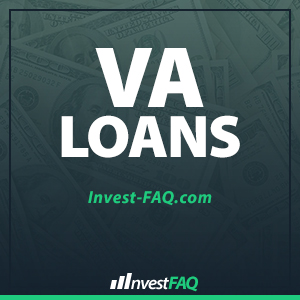 The Department of Veterans Affairs (VA) Home Loan Guaranty program provides benefits to military personnel that dwarf those of any conventional home financing option. Since the program’s inception in 1944, it has helped more than 20 million men and women purchase a home.
The Department of Veterans Affairs (VA) Home Loan Guaranty program provides benefits to military personnel that dwarf those of any conventional home financing option. Since the program’s inception in 1944, it has helped more than 20 million men and women purchase a home.
Because of their service to the United States, veterans and active-duty military members earn exclusive access to this program. A person may qualify for a VA loan to purchase or refinance a home based on any of these three criteria:
- Served on active duty for 90 days during wartime or 181 days during peacetime
- Served in the Reserves or National Guard for at least six years
- Was married to a service member who died in the line of duty.
The VA loan program’s most attractive feature is that qualified borrowers can purchase property with no down payment. For not even a penny, VA loan borrowers can buy a home worth up to $417,000. In high-cost housing markets, the loan limit often exceeds the $417,000 limit for a so-called “conforming” loan.
Additionally, VA loans boast competitive interest rates. Since the VA insures up to 25 percent of every loan instead of issuing the loan, lenders are willing to keep interest rates comparable to the market. The program caps interest rates for active-duty personnel. VA loans also hold monthly costs down because lenders don’t require private mortgage insurance (PMI).
It’s easier to qualify for a VA loan than a conventional loan. VA loan lenders accept less-than-perfect credit, and look for credit scores of about 620 and above. Those interested in a VA loan shouldn’t hesitate to apply because of a history of foreclosure or bankruptcy. Having either in the past does not automatically disqualify a veteran from the program.
The VA caps how much veterans can pay in fees and charges at closing. The lender may reduce its closing costs by charging the borrower a slightly higher interest rate. Alternately, the seller may cover some or all closing costs by rolling those costs into the purchase price.
The cost for these many benefits is a one-time funding fee assessed by the lender. On average a borrower whose loan is insured by the VA pays about 1.75% of the loan amount as a fee. Borrowers have the option of rolling the VA funding fee into payments so that it’s not a lump-sum payment due at closing. A disabled or retired veteran may be exempted from paying this fee.
However, some prospective home buyers may find that a VA loan program isn’t for them. Veterans with excellent credit and enough savings to make a 20- or 25-percent down payment may find that a conventional financing option carries a lower interest rate, and of course does not require the VA funding fee. Home buyers with enough savings to accommodate such a down payment should weigh all options.
Completing a Certificate of Eligibility (COE) from the VA website or VA-certified lender is the first step in getting a VA loan. COEs are documents that basically verify your eligibility. To maximize your financial benefits from getting a VA loan it’s wise to contact a VA loan specialist who knows the program well.
Here are additional resources for VA loans:
- The United States Department of Veterans Affairs lists all the rules, frequently asked questions, and more on their web site.
http://www.homeloans.va.gov - The New York Times published an article in June 2010 about lenders raising the required credit score for borrowers seeking VA loans.
http://www.nytimes.com/2010/06/27/realestate/27mort.html - Karl Jeacle offers a mortgage calculator where you can find the monthly payments, see an amortization graph, and generate reports.
http://www.drcalculator.com/mortgage - VA Mortgage Center is a VA-certified lender. Consult with a loan officer to see how a VA loan might suit your needs, finances and aspirations, and take advantage of all the VA home loan program has to offer.
http://www.vamortgagecenter.com - VA Home Loan Centers is an approved originator of VA mortgages. Their web site offers a free application and many home-loan resources.
https://www.vahomeloancenters.org
Article Credits:
Contributed-By: Jay Buerck, Nichole VanDerwall
